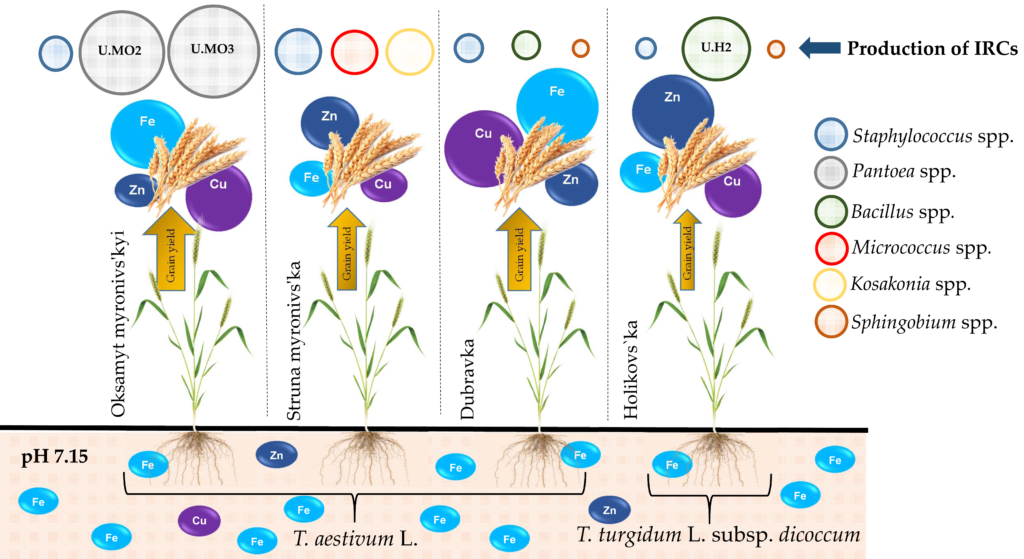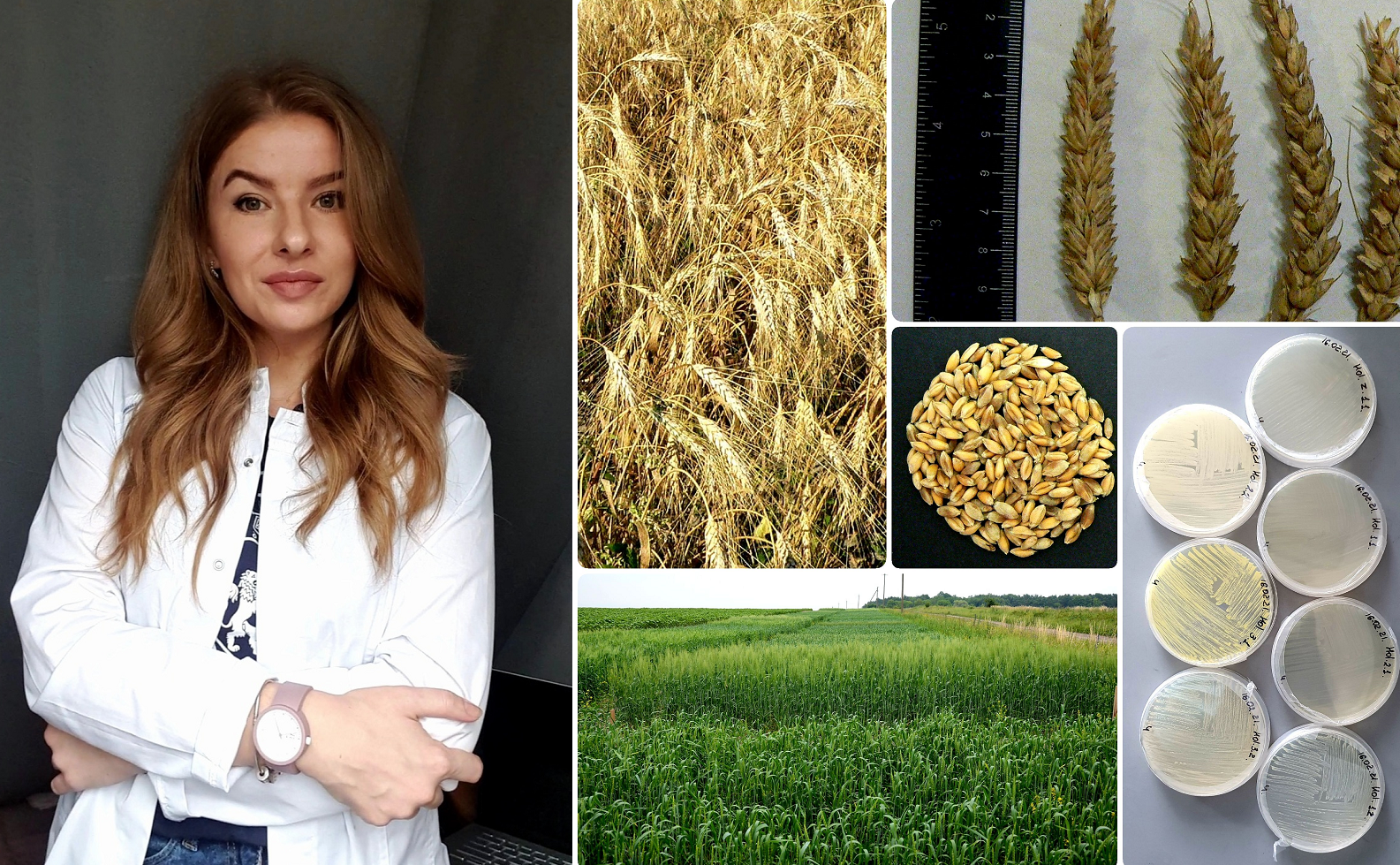NOVEL INSIGHT TO IMPROVE WHEAT GRAIN QUALITY
Micronutrient malnutrition is a serious nutritional disorder that affects people in areas where caloric intake comes mostly from staple cereals. Many people in Ukraine and worldwide suffer from mineral deficiency of Iron [Fe], Zinc [Zn] and Copper [Cu]. The concentration of micronutrients in wheat grains depends to a great extent on bacterial endophytes. Endophytes play an important role in promoting plant growth and yield, suppressing pathogens, removing contaminants, solubilizing phosphate and contributing to nitrogen assimilation. Having the right microbes makes plants healthier. Just as humans can benefit from the good bacteria of probiotics, plants too can benefit from certain microbes.

The article is the result of cooperative work and research by specialists in the field of microbiology, molecular biology and plant physiology from Ukraine, Poland and the US.
Our manuscript describes a new approach for establishing the relationship between grain endophytic bacteria, Fe, Cu, and Zn concentrations, and yield in the T. aestivum and T. turgidum subsp. dicoccum spring Ukrainian wheat varieties grown under limited bioavailability of these microelements in the field.
In this article, we report on the isolation and identification of twelve different strains of bacterial endophytes from the grain of four spring wheat varieties. The isolated bacterial endophytes belong to genera: Staphylococcus, Pantoea, Kosakonia, Micrococcus, Bacillus, and Sphingobium. Furthermore, for the first time bacterial endophytes were isolated from grains of emmer T. turgidum subsp. dicoccum wheat. Varietal differences in the yield, yield characteristics, and the grain micronutrient concentrations were compared with the endophytic bacteria isolated from the grains.
The obtained results are a prerequisite for the further development of new biotechnological approaches for improving grain nutritional quality, high yield capacity and stress tolerance. The possibility of using microorganisms to improve the micro-elemental composition of grain is an important food security concern, as approximately one-third of the human population experiences latent starvation caused by Fe (anemia), Zn or Cu deficiency. In particular, beneficial wheat microbial strains could be a sustainable tool for obtaining better micronutrient quality of wheat.
This work was supported by the Visegrad Fund, Visegrad Scholarship grant number 51810815, and partially supported by the CRDF-Global grant, Project OISE 16-62755-0.
-Orysia Makar, Ph.D. student, Ivan Franko National University of Lviv
Article in MDPI Biology - Bacterial Endophytes of Spring Wheat Grains and the Potential to Acquire Fe, Cu, and Zn under Their Low Soil Bioavailability

